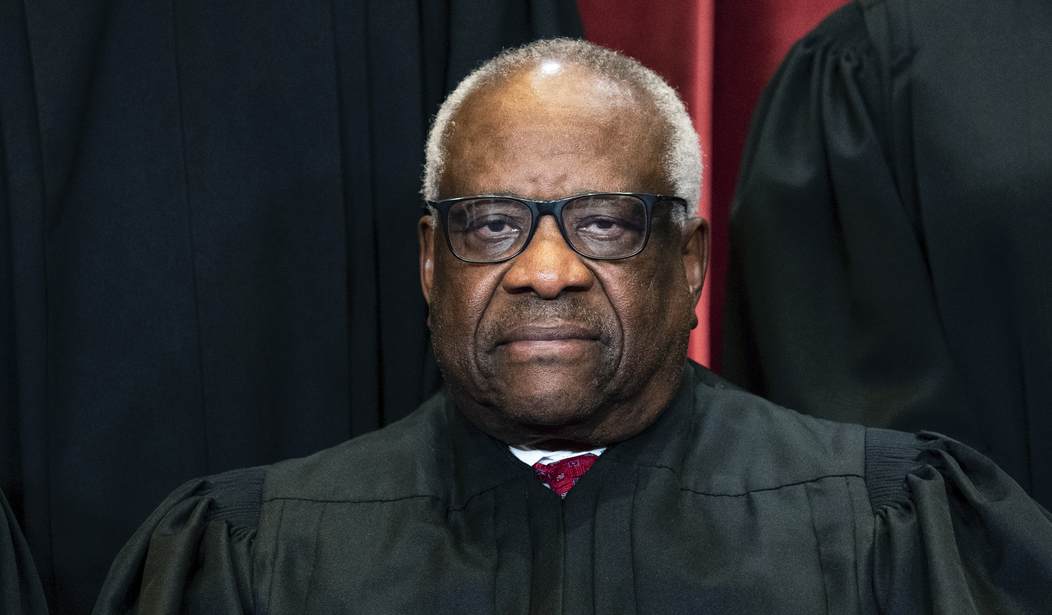Supreme Court Justice Clarence Thomas demanded answers from an attorney who voted in favor of kicking former President Trump off the primary ballot, citing an insurrection clause that dates back to the Civil War.
This week, attorney Jason Murray challenged Trump’s eligibility to appear on the 2024 presidential election ballot, claiming that under Section Three of the 14th Amendment, he should not be allowed to run for office if he incites an “insurrection.”
In response, Thomas demanded Murray provide “contemporaneous examples” to support his claim that Trump should be banned from the primary ballot.
Murray said he thought it was “not surprising that there are few examples” because, at that time, “candidates were either write-in or they were party ballots, so the states didn’t run the ballots in the same way, and there wouldn’t have been a process for determining before an election whether a candidate was qualified, unlike the processes that we have now,” referring to 1868 congressional election in Georgia.
The Supreme Court Justice argued that Murray’s argument fell short of “the adoption of the 14th Amendment, where the states disqualified national candidates — not its own candidates.”
During the Reconstruction era, Thomas explained, there would still be a “plethora of Confederates still around” who might run for state or national offices and “a few examples of national candidates being disqualified, if your reading is correct.”
Recommended
Murray once again claimed some national candidates were “disqualified by Congress refusing to seat them,” to which Thomas reminded the attorney that the case pertains to states disqualifying national candidates.
The anti-Trump attorney failed to list examples of his argument, claiming that it was because “elections worked differently” in the 19th century.
“States have a background power under Article II in the 10th Amendment to run presidential elections,” Murray said, adding that they did not “use that power to police ballot access until about the 1890s” when “everyone had received amnesty, and these issues had become moot.”
SEE IT: Justice Clarence Thomas obliterates Colorado lawyer Jason Murray. Every time you use too many words to respond to a direct simple question, you're probably lying or trying too hard. Are you in love with her/him? Yes or No? Should be simple. WATCH pic.twitter.com/tciCaFyqpB
— Simon Ateba (@simonateba) February 8, 2024
























Join the conversation as a VIP Member